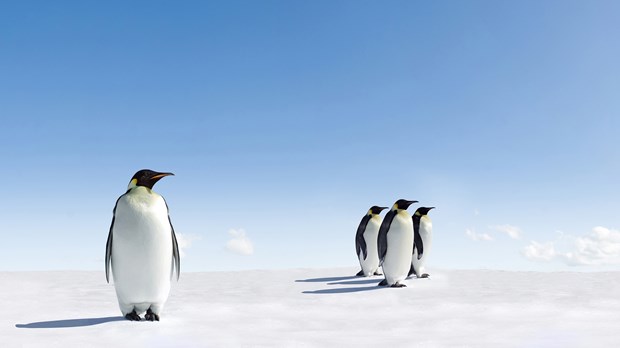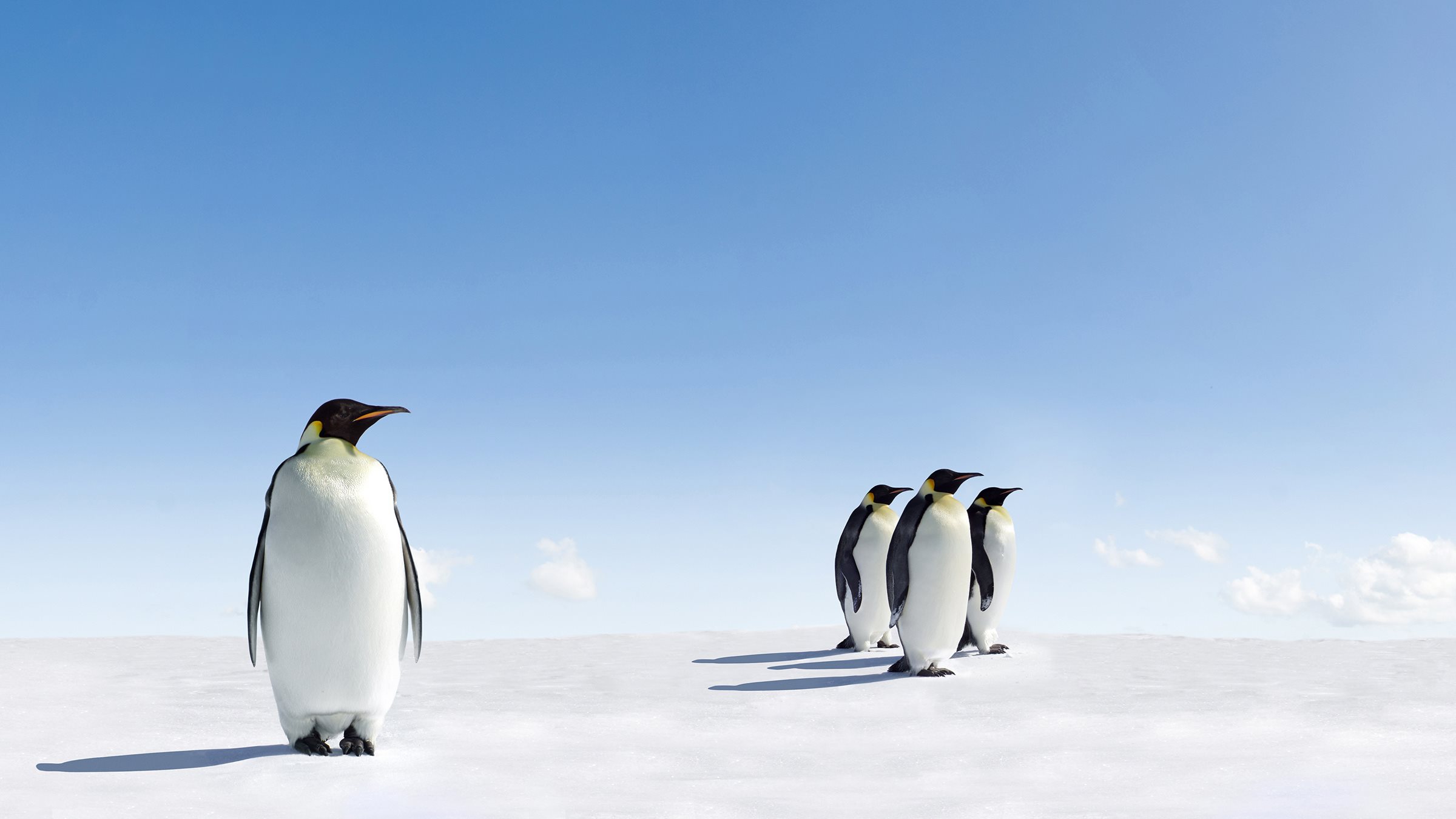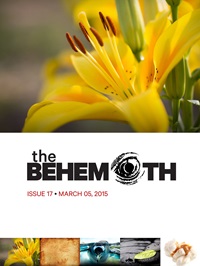‘Beauteous Duck’
The emperor penguin is an animal from which myths are made. /
Praise the Lord from the earth,
you great sea creatures and all ocean depths.
(Ps. 148:7)
The qualities of the emperor penguin are extraordinary.
They are the only bird species that breed on sea ice, and the only penguin that may live their whole life without touching land.
They are the largest living penguin, weighing in at double their nearest rival, the king penguin of the subantarctic islands.
Male emperors incubate their eggs uninterrupted for two months, the longest time of any bird or reptile, all the while shuffling with the egg balanced on their feet (albatrosses incubate longer, but they take turns at the nest).
Masters of endurance, they weather the coldest and windiest habitat on earth. They are the only penguin that shows no territorial aggression, having realized that in order to survive, personal space is a luxury they cannot afford. They live through storms of hurricane-force winds and temperatures as low as minus 70◦C, leading Apsley Cherry-Garrard to observe that in his opinion no creature on earth has a worse time.
By the end of their incubation the males have fasted for four months, burning 80 percent of their fat reserves before beginning to break down their own muscles. The little fat they leave on their bones is just enough to fuel their walk back to open sea at the completion of this fast, a journey of over a hundred miles across rough and broken sea ice.
Though they are in some ways closer to reptiles than any other bird alive, they produce a milky fat-rich substance to feed their young, as mammals do. The process is astonishing: although starving themselves, the males slough off strips of their own stomach lining, each laden with fat globules, to feed their newly hatched chicks until the females return. The chicks can double their weight on this food.

To survive their appalling environment, emperors have evolved to have the highest density of feathers, the smallest relative size of eggs, and the smallest relative surface area of any bird. They dive deeper, and longer, than any other bird. One tracked emperor plunged about a third of a mile beneath the sea, to a depth that would squeeze it over 60 times atmospheric pressure, and they can stay down for over twenty minutes.
Most birds have strong pectorals, bulky muscles that force a downbeat capable of carrying the sky. Emperors have to carry the oceans, and so as well as strong pectorals they have rippling back muscles to force their way down through water columns weighing hundreds of tons.
Edward Wilson, on the Discovery expedition, tried to capture some for their skins. [Captain Robert Falcon] Scott wrote of the attempt, “It is no easy matter to hold an emperor; they are extraordinarily strong both in their legs and flippers ... more than one of the party seem to have been temporarily floored by the wild dashes of the intended victims.” A Dundee whaling crew once tried to capture an emperor by strapping two leather belts around its wings. Like a Victorian strongman the bird simply inhaled, and the belts snapped off.
The Kalevala, an epic of Finnish folklore, describes a “beauteous duck” who with her eggs becomes the earth and sky. Several Native American creation myths involve loons, diving birds like penguins credited with bringing mud from the seabed to create the earth. An indigenous human society has never developed on Antarctica. If it had, the emperor penguin would surely have been worshipped.
Gavin Francis is a Scottish author and physician. This article was excerpted from his book Empire Antarctica: Ice, Silence & Emperor Penguins.
Copyright © 2013 by Gavin Francis, from Empire Antarctica. Reprinted by permission of Counterpoint. Scripture epigram added by the editors.
Also in this Issue
Issue 17 / March 5, 2015- Editors’ Note
- The Problem of Beauty
It’s a clue that leads us to the most magnificent of places. /
- The Good News on Paper
13 amazing facts about a material used by millions to feed the soul. /
- O Sapientia
‘My Ground of Being, always grounding me.’ /
- Wonder on the Web
Links to amazing stuff /



